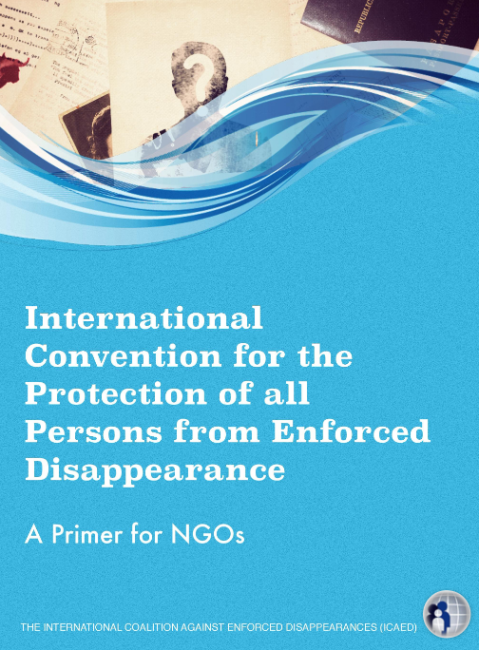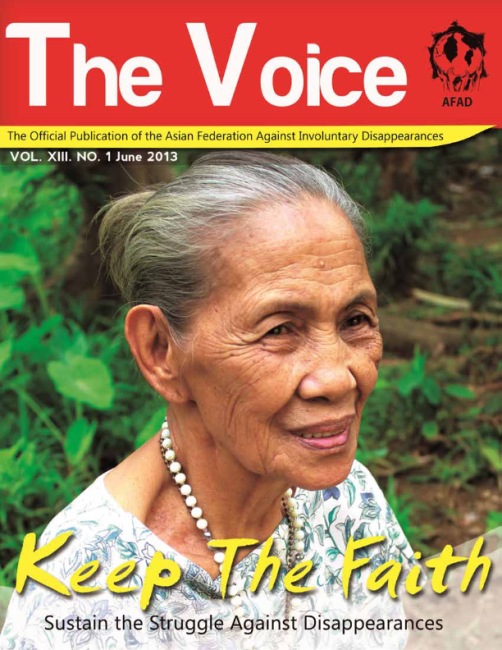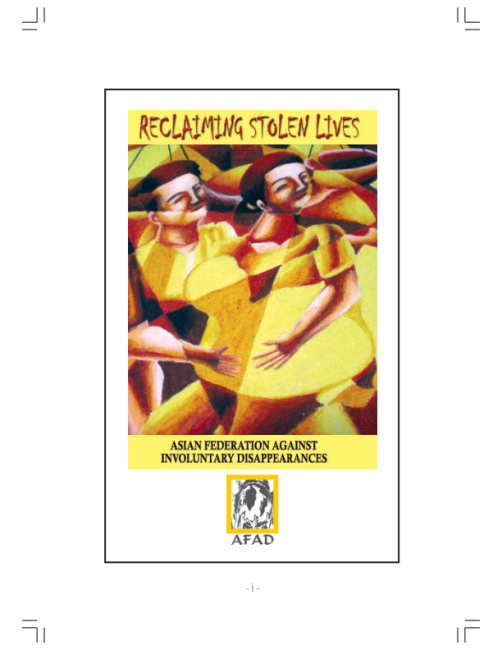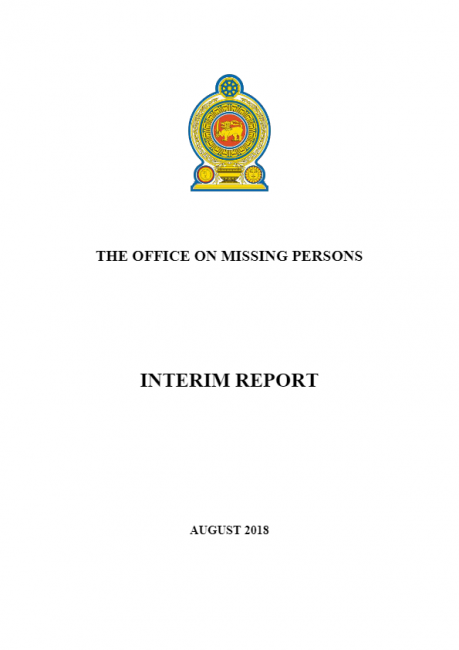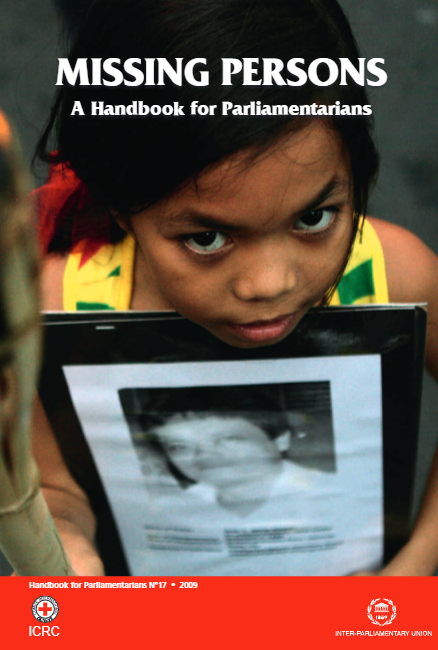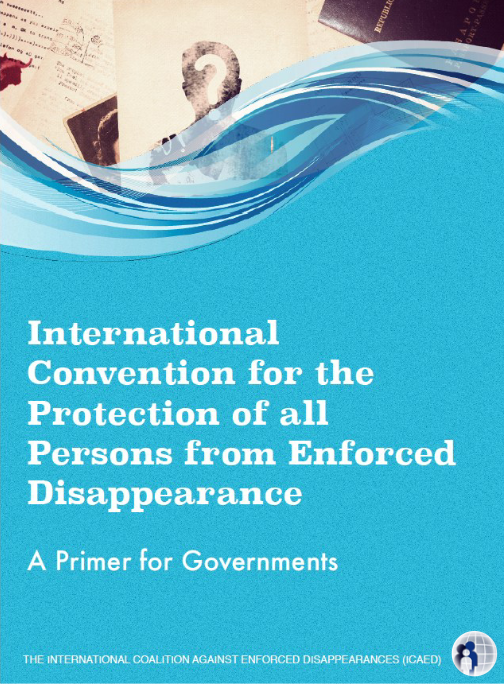
International Convention for the Protection of all Persons from Enforced Disappearance. A Primer for Governments.
The International Convention for the Protection of All Persons from Enforced Disappearance was adopted by the UN General Assembly on 20 December 2006 and entered into force on 23 December 2010, after the 20th instrument of ratification had been deposited to the UN Secretary General by Iraq. Over the past six years the number of States parties to the Convention kept growing, reaching 51 ratifications. Although at present Asia is the continent with the highest number of reported cases, enforced disappearances can occur everywhere.
In this context, ICAED decided to realize two different Primers on the International Convention for the Protection of All Persons from Enforced Disappearance. One is directed at States and the other to NGOs and civil society. The former aims at addressing some of the most frequently asked questions by Governments concerning the Convention, thus focusing on the importance of the ratification and implementation of the Convention for States. On the other hand, the Primer directed to NGOs and civil society aims at giving them suggestions and additional tools for their lobbying activities. Both Primers analyse in depth the Convention’s provisions and the mandate of the Committee on Enforced Disappearances.
The Convention on Enforced Disappearance is a powerful tool, which, however, has been looked at with suspicion by various Governments. For this reason this publication is particularly important, as it aims at clarifying the doubts and misunderstandings surrounding this international human rights instrument. It is a meaningful exercise as “Enforced disappearance is not – not only – an omen of history, a crime from the past, linked with totalitarian regimes and military dictatorships of the XX° century. It is a burden for modern societies which have the duty to respect, to protect and fulfill human rights, especially for the victims of enforced disappearance, through the right to truth and to justice, the fight against impunity, and a guarantee of non-repetition.


